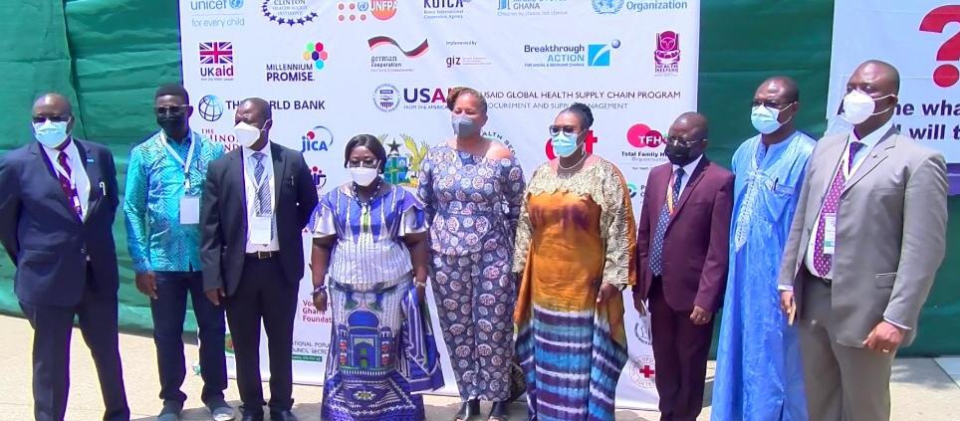In light of the Covid-19 crisis, the Ghana Health Service (GHS) is making attempts to improve Reproductive, Maternal, Newborn, Child and Adolescent Health (RMNCAH) in ways that are effective and beneficial to all.
At the Maternal Child Health and Nutrition Conference (MCHN), GHS revealed that their approach to tackling the possibility of an increased mortality rate includes a series of workshops across the country.
Projections by Lives Saved Tool (L.i.S.T) indicated that the country was at risk of increased child and maternal mortality rates.
Although Lives Saved Tool projected that reduced coverage RMNCAH by 15% within six months would cause over 250,000 additional child deaths and over 12,000 additional maternal deaths, Ghana’s number fell below this.
Speaking to JoyNews at the Maternal Child Health and Nutrition Conference (MCHN), Director General of the GHS, Dr Patrick Kuma-Aboagye, says the institution is determined to use its newly defined objectives to improve Ghana’s response to the maternal and child mortality rate in the midst of Covid-19.
He said, “The objective of the workshop is to improve the resilience of the health sector… in responding during a crisis.”
Dr Kuma-Aboagye also says that although during the first half of 2020, the health sector “lost ground” due to the unexpected global pandemic, “by the end of the second half, we had actually improved our care services and were able to offer care to all even in the midst of a pandemic.”
Chief of Staff, Akosua Frema Opare says it is the priority of the government to provide “equitable distribution” of competent health structures accessible to all women and children in the midst of the pandemic, and thanks to the Deputy Minister of GHS, health workers and other private parties for their contributions to the welfare of all.
The Chief of Staff also calls upon all “policymakers, researchers, service providers and other stakeholders to use the opportunity provided by this conference to discuss the RMNCAH and Nutrition strategic plan and how to effectively implement it within the next four years.
Companies like Marie Stopes were also present at the event. Amid their expansion all over the country in places including the Tamale, the Oti Region, etc.
A representative of Marie Stopes International, Ghana, says the company is involved in tasking “midwives who are training the Ghana Health Service staff to be better equipped” training programs for GHS personnel in child and maternal health to help affect the decrease in maternal and child mortality rates.
“We are meting out services to people who are in…severely rural communities.”
Marie Stopes was one amongst many company displays at the event that are partnered with GHS to contribute to the GHS’s increased investment in RMNCAH.
Latest Stories
-
Expansion Drive: Takoradi Technical University increases faculties
1 hour -
SHS heads demand payment of outstanding funds before reopening of schools
2 hours -
We thank God for the 2024 general elections – Akufo-Addo
2 hours -
Coconut Grove Beach Resort marks 30 years of excellence with memorable 9 lessons & carols service
2 hours -
WAFU B U-17 Girls’ Cup: Black Maidens beat Nigeria on penalties to win inaugral tournament
3 hours -
Real Madrid beat Sevilla to keep pressure on leaders Atletico
4 hours -
Liverpool put six past Spurs to go four points clear
4 hours -
Manchester United lose 3-0 at home to Bournemouth yet again
4 hours -
CHAN 2024Q: ‘It’s still an open game’ – Didi on Ghana’s draw with Nigeria
4 hours -
CHAN 2024Q: Ghana’s Black Galaxies held by Nigeria in first-leg tie
5 hours -
Dr Nduom hopeful defunct GN bank will be restored under Mahama administration
6 hours -
Bridget Bonnie celebrates NDC Victory, champions hope for women and youth
6 hours -
Shamima Muslim urges youth to lead Ghana’s renewal at 18Plus4NDC anniversary
7 hours -
Akufo-Addo condemns post-election violence, blames NDC
7 hours -
DAMC, Free Food Company, to distribute 10,000 packs of food to street kids
8 hours

